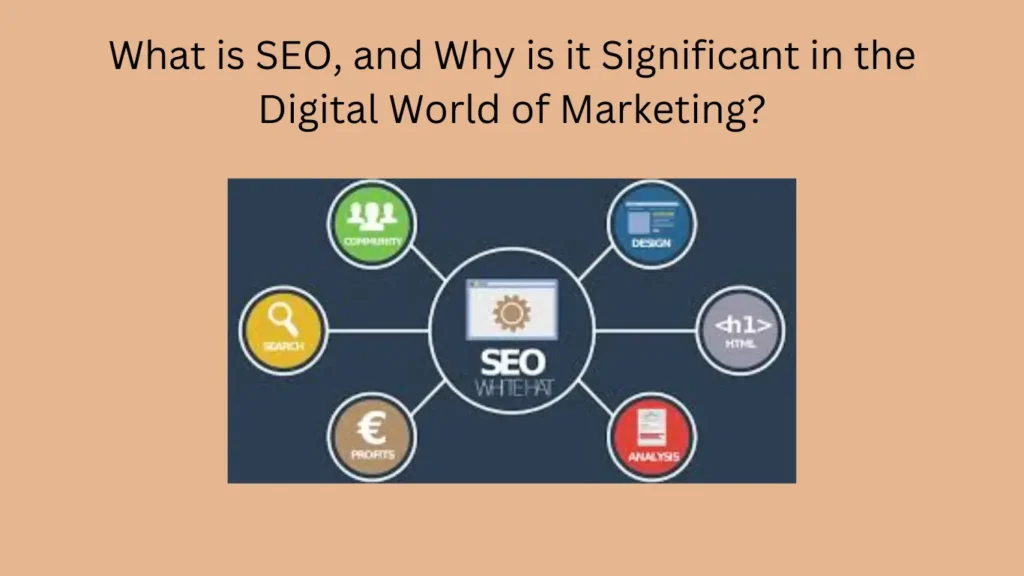Introduction
Search Engine Optimization (SEO) is a crucial component of digital marketing that helps businesses improve their online visibility and attract more organic traffic. This guide will explain what SEO is, its key components, and why it is significant in the digital world of marketing. By focusing on creating helpful, reliable, people-first content, businesses can leverage SEO to achieve their marketing goals.
What is SEO?
SEO stands for Search Engine Optimization. It is the practice of optimizing a website to improve its ranking on search engine results pages (SERPs). SEO involves various strategies and techniques aimed at making a website more appealing to search engines like Google, Bing, and Yahoo.
Key Components of SEO
- Keyword Research: Identifying and targeting relevant keywords that potential customers are likely to use when searching for products or services.
- On-Page SEO: Enhancing individual web pages to boost their rankings in search engine results. This involves optimizing elements such as title tags, meta descriptions, headers, and the content itself.
- Off-Page SEO: Building a website’s authority and credibility through external factors such as backlinks from other reputable sites.
- Technical SEO: Ensuring that a website is technically sound and accessible to search engine crawlers. This includes optimizing site speed, mobile-friendliness, and site architecture.
- Content Creation: Producing high-quality, relevant, and valuable content that meets the needs of users and answers their queries.
Why is SEO Significant in Digital Marketing?
- Increased Visibility and Traffic: SEO helps improve a website’s visibility on search engines, leading to increased organic traffic. Higher visibility means more potential customers can find and visit your site.
- Cost-Effective Marketing: Unlike paid advertising, organic search traffic is free. Investing in SEO can provide long-term benefits without the ongoing costs associated with pay-per-click (PPC) advertising.
- Enhanced User Experience: Good SEO practices, such as optimizing site speed and mobile-friendliness, also improve the overall user experience, leading to higher engagement and conversion rates.
- Building Trust and Credibility: Websites that rank high on SERPs are often perceived as more trustworthy and credible by users. SEO helps build authority, which can enhance your brand’s reputation.
- Competitive Advantage: In today’s digital landscape, having a strong SEO strategy can give you an edge over competitors who may not be as optimized for search engines.
Conclusion
SEO is an essential aspect of digital marketing that can significantly impact a business’s online presence and success. By understanding and implementing SEO best practices, businesses can improve their visibility, attract more organic traffic, and build trust with their audience. Focusing on creating helpful, reliable, people-first content is key to a successful SEO strategy that meets the needs of both users and search engines.
For further Inquires Contact Us
FAQs
What is SEO?
- SEO stands for Search Engine Optimization. It is the practice of optimizing a website to improve its ranking on search engine results pages (SERPs).
Why is SEO important for digital marketing?
- SEO is crucial for digital marketing because it increases online visibility, attracts organic traffic, enhances user experience, builds trust, and provides a competitive advantage.
What are the key components of SEO?
- The key components of SEO include keyword research, on-page SEO, off-page SEO, technical SEO, and content creation.
How does SEO improve website visibility?
- SEO improves website visibility by optimizing various aspects of a website to rank higher on search engine results pages, making it easier for users to find the site.
What is the difference between on-page and off-page SEO?
- On-page SEO involves optimizing individual web pages, such as title tags and content, while off-page SEO focuses on external factors like backlinks from other reputable sites.

